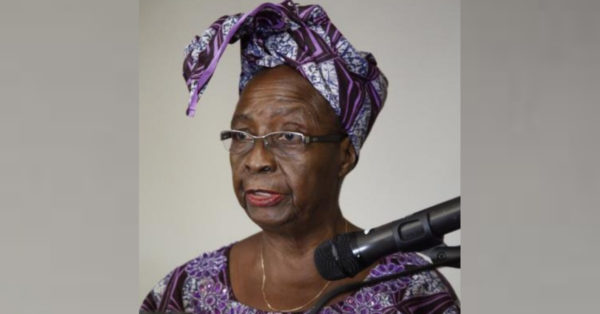
The Nigerian professor, poet, critic, editor, activist and leading feminist thinker Molara Ogundipe has passed on at 78. She died on Tuesday, 18 June, in her home in Ijebu-Igbo, Ogun State, Nigeria.
One of the most cited theorists in gender studies, she is best known for founding Stiwanism, a sub-movement of feminism. Articulated in her 1994 book Re-Creating Ourselves: African Women and Critical Transformations, the movement—based on the coinage STIWA: Social Transformation Including Women in Africa—argued for the understanding of black African women in the context of socio-economic hierarchies—indigenous social culture, gender, race, religion, class, and national development—in ways that are both individual and collective even when contradictory. She argued that Nigeria’s social and political institutions may be best developed with the inclusion and rediscovery of the role of women. Her work is a major basis for feminist thinkers.
Born Abiodun Omolara Ogundipe in Lagos, to a family of educators and clergy, she attained several academic firsts in the male-dominated field of scholarship: at the University College, Ibadan, she became the first person to graduate with First Class honours in English; and then the first Nigerian woman to become a PhD in Narratology, this time at Leiden University, The Netherlands. She taught English, Creative Writing, Comparative Literature and Gender Studies at Ogun State University and the University of Port Harcourt in Nigeria, Legon University in Ghana, and Northwestern University in the USA. A columnist for the Nigerian newspapers The Guardian, where she was on the editorial board, and The Nation, she was the Founder and Director of the Foundation for International Education and Monitoring, which took on inter-generational education and mentoring for young women.
Her books include the poetry collection Sew the Old Days and Other Poems (1985) and the aforementioned essay collection Re-Creating Ourselves: African Women & Critical Transformations (1994). She edited Women as Oral Artists (1994) and, with Carole Boyce-Davies, Moving Beyond Boundaries (1995). Her essay, “Not Spinning on the Axis of Maleness,” appears in the 1984 anthology Sisterhood Is Global: The International Women’s Movement Anthology, edited by Robin Morgan, and her poetry was published in the groundbreaking 1992 anthology Daughters of Africa, edited by Margaret Busby.
May she rest in brilliance.









Jacqueline-Bethel Mougoue June 21, 2019 20:06
She was brilliant. A big loss to the African feminist community.